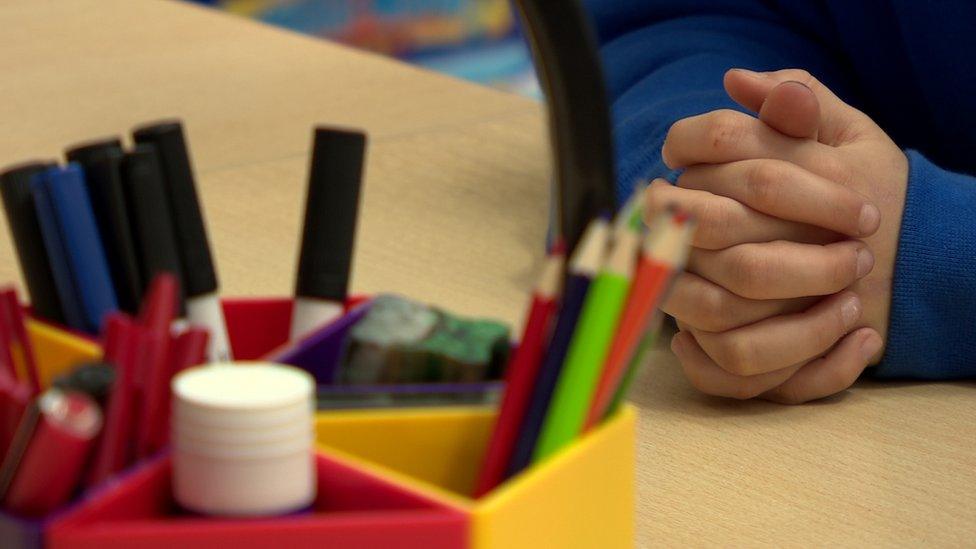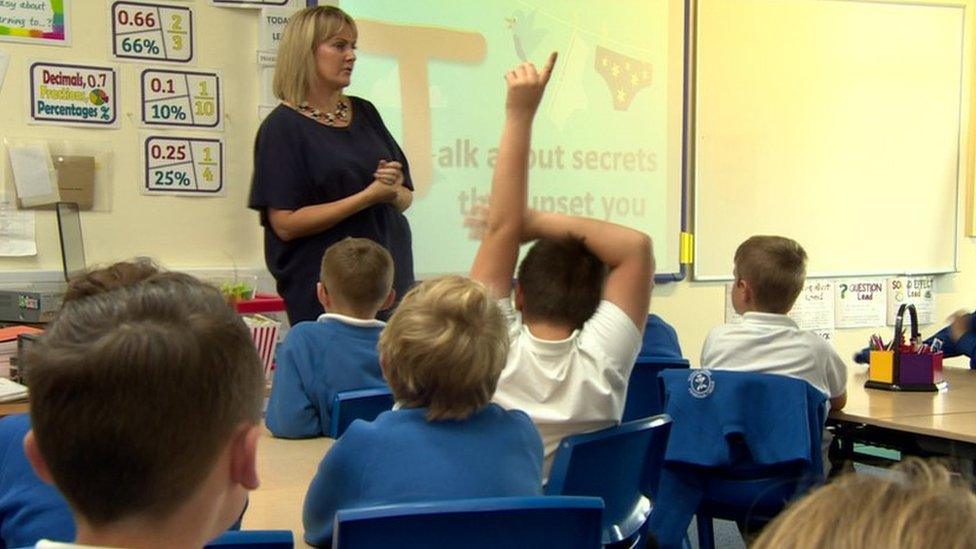Primary school children in Northern Ireland to get lessons on tackling abuse
- Published

If the pilot programme is successful, it could be introduced in schools across Northern Ireland
Children at 90 primary schools across Northern Ireland are to be given lessons in preventing and combating abuse.
The National Society for the Prevention of Cruelty to Children (NSPCC) will deliver the 'Keeping Safe' programme.
Lessons will begin in September 2016 and teachers will receive specially tailored training and resources.
The Department of Education is providing £795,000 of funding for the project.
About 9,000 children in all classes from primary one to primary seven in the selected schools will receive age-appropriate lessons in preventing emotional, physical, sexual and domestic abuse.

Primary school teacher Barbara Nugent says children have the right to know that abuse is wrong
Some schools already engage external organisations to deliver lessons on preventative safety as part of personal development and mutual understanding courses.
The Department of Education, for instance, already funds the Women's Aid Helping Hands programme in primary schools that teaches children how to recognise unsafe situations and to seek help.
Threat
But the NSPCC programme will focus on sexual abuse and bullying prevention, and will be evaluated in a randomised control trial over the two years of its delivery.
If it is judged to be successful, it may then be rolled out to every primary school in Northern Ireland.
Barbara Nugent, a primary school teacher from Dungannon in County Tyrone, has been seconded to NSPCC NI to develop the programme, and said school is an appropriate place for children to learn about the dangers of abuse.
The Keeping Safe programme will be taught in 90 primary schools from September 2016, as Robbie Meredith reports
"We know from our research that there are significant gaps in children's understanding about what abuse is, who poses a threat, and how to seek help," she said.
"In fact, many children believe that strangers pose the greatest threat to them whereas nine out of 10 children who are abused are actually abused by someone known to them."
Ms Nugent said all children have the right to know abuse is wrong and how to keep safe.
"The best way to do this is by integrating these important messages into the curriculum and school ethos so children know from an early age that abuse is wrong and understand that it can be stopped."
In one pilot lesson observed by the BBC, primary six children in Windmill Integrated Primary School in Dungannon discussed the importance of the privacy of their bodies and who to tell if they were worried about abuse.